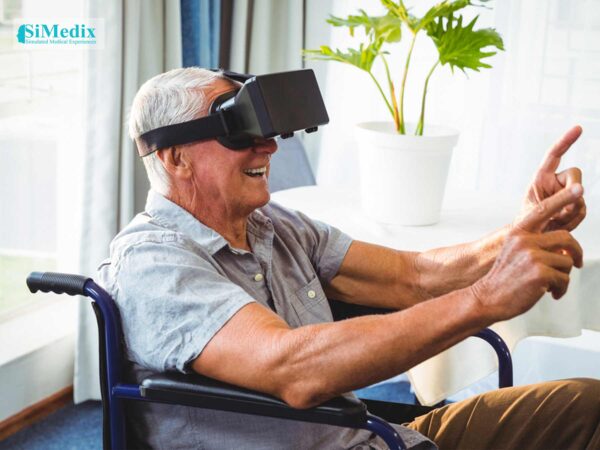Virtual reality enhances elders well-being

“Approaches to Cognitive Stimulation in the Prevention of Dementia” is a report by gerontologists at Loughborough University (UK) and German Sports University Cologne. They analyzed studies of cognitive intervention strategies for people with mild memory loss or moderate dementia. They concluded that the practice of cognitive stimulation has 3 fundamental goals, each involving multiple strategies:
- educational training, which teaches people who develop problems about their symptoms, such as onset and duration of memory decline, and ways to cope.
- functional memory improvement, including memory aids (calendars, memory books, etc.), reality orientation (repeated presentation of name, date, time, place, weather, other basic info), and method of loci (mnemonic system for linking an item with aplace).
- cognitive functioning techniques, exercising ability to memorize, calculate, perceive,and react, including reminiscence therapy, a clinical intervention that evokes discussionof positive nostalgic experiences, increases motivation and focus, and fosters self-worth,psychological resilience and improved well-being.
Yes, there’s a scientific reason that our elders love to tell and re-tell old stories — it givesthem pleasure. Recalling and sharing life experiences produces the neurotransmitterdopamine, which plays a role in human motion and emotion. Low dopamine levels leadto lack of motivation, fatigue, addictive behavior, mood swings, and memory loss. Hence,increasing dopamine levels likely reduces memory loss.
And if an elder is struggling with short-term memory loss (peoples’ names, meals eaten),the ability to recall and share long-term memories is a gift. Virtual reality-based cognitive rehabilitation systems support procedures for mitigatingbehavioral and psychological symptoms of patients having mild cognitive impairmentand early-stage Alzheimer’s disease.
It’s exciting to bring virtual reality-based experiences to our elders, and all people who nolonger freely have access to the outside stimuli that normally would enhance motivationand focus. These are the people for whom virtual reality applications can provideexcitement and wonder that would otherwise be impossible for them to experience.
